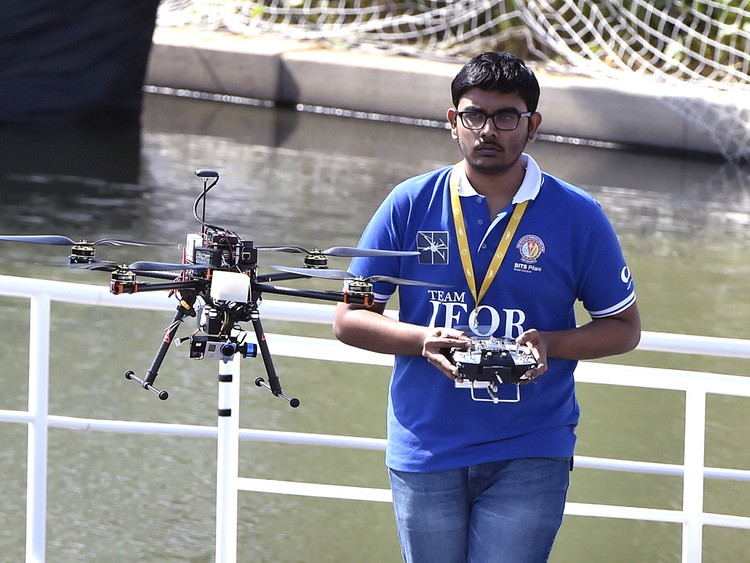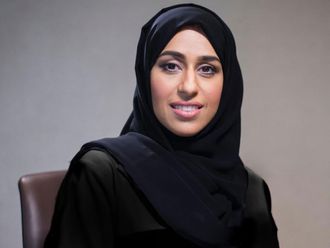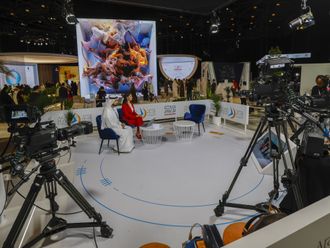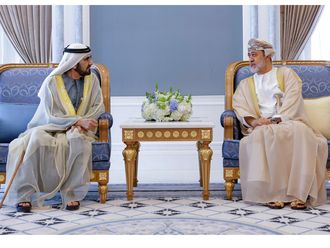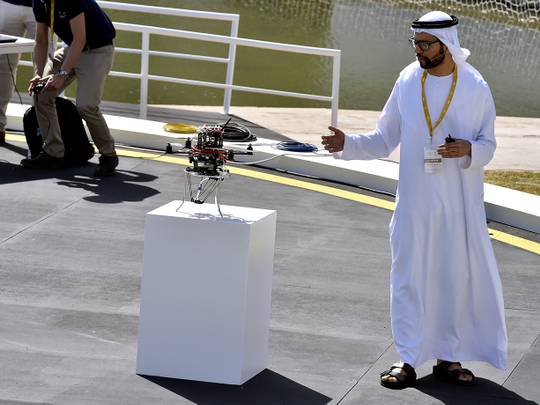
Dubai: Six teams qualified for the finals of the second edition of the UAE Drones for Good Award on Thursday.
The UAE AI and Robotics Award for Good is the largest award of its kind, offering a total prize money of Dh4.67 million ($1 million for the International Competition winner, and Dh1 million for the National Competition winner).
The Award, launched by His Highness Shaikh Mohammad Bin Rashid Al Maktoum, Vice President and Prime Minister of the UAE and Ruler of Dubai, aims to employ civilian applications of Unmanned Aerial Vehicles (UAV) technology for improving people’s lives.
The three finalists in the International Competition are Loon Copter’s multi-rotor drone (USA); 4Front Robotics’ USAR Robot drones (Canada); and SenseLab’s SaveME drone (Greece).
The three finalists in the National Competition are Buildrone’s construction and repair aerial robot drone, ReefRover’s drone for studying underwater ecosystems; and FlyLab’s drone aimed at the education sector.
Speaking on the occasion, Saif Al Aleeli, Chief Executive Officer of Dubai Museum of the Future Foundation and Coordinator General of the UAE Drones for Good Award, said: “Innovation is a key factor in building the future and using technology in the service of humanity, especially considering the increasing demand for efficient services in various sectors. The second UAE Drones for Good Award has become a major platform to host global innovators and launch the latest technological projects and innovations that offer services to improve the lives of human beings, and find solutions to some of the most critical issues facing the world today.”
Al Aleeli added: “The drones sector is certainly in its early stages but we are confident that it will evolve in the coming years as a major contributor to the world economy.”
The event also witnessed two launches of breakthrough concepts.
Robot designed for civil defence and fire protection sector:
The first robot designed and developed in Dubai for the civil defense and fire protection sector was also launched on the first day of the award.
The robot, which is called Fire Bot, is an innovative project from Digi Robotics, a company that offers specialized solutions and technologies in robotics and artificial intelligence systems.
The robot is capable of carrying out critical tasks remotely by connecting to extinguishing systems in buildings and automatically moving to the source of fire to carry out the initial fire extinguishing process until the arrival of firefighters. The robot can also be used to carry out awareness campaigns in malls.
A memorandum of understanding (MoU) to develop the robot further was signed between the General Directorate of Civil Defence Dubai and Digi Robotics in the presence of Major General Rashid Thani Al Matrooshi, Director General of Dubai Civil Defence; and Jamal Al Khatib, CEO of Digi Robotics; and Al Aleeli.
The robot has been manufactured according to the ideas and requirements set by the Civil Defence with the possibility of including updates during its development. The agreement provides for workshops and training courses for civil defence workers on using the robot. The robot will be subject to a trial period of three months and then evaluated at the end of the period to determine its technical and operational efficiencies.
WeRobotics
A new start-up, which focuses on empowering local partners in developing countries with drones and robotics technology to sustainably scale their social projects in humanitarian, development and environmental fields, was launched during the UAE Drones for Good Award and UAE AI & Robotics Award.
Patrick Meier, an internationally recognised expert and consultant on humanitarian technology and innovation, said his start-up, WeRobotics, identifies local humanitarian needs that can be addressed using robotics solutions, and transfers relevant skills and appropriate robotics technologies to its Flying Labs partners to offer humanitarian relief, especially during natural disasters.
“We are building a global network of labs where people use robotics to alleviate suffering, improve the human condition and protect the environment. We do this together with our local partners — universities, non-profit groups, community organisations and local government — and with our tech partners — robotics manufacturers, associated technology companies and research institutes,” Meier said.
WeRobotics also identifies local development needs that can be addressed using robotics solutions to help local partners map and monitor informal settlements, social infrastructure and waste management issues in more efficient and productive ways.
WeRobotics also uses aerial robots to help nature conservation groups to more effectively communicate their cause, and transfer relevant skills and robotics technologies to its Flying Labs partners to better protect the planet.


